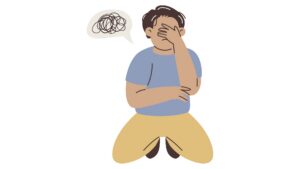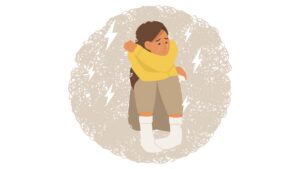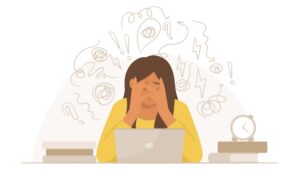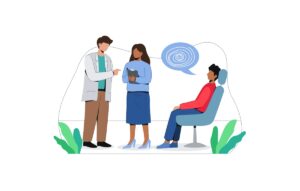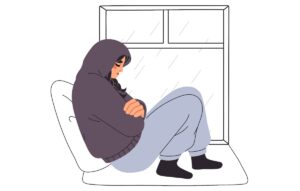When School and Mental Health Collide
As a parent, one of the hardest questions you may face is: “What happens to my child’s education if they need treatment?” For families considering a Partial Hospitalization Program (PHP), this concern is often front and center.
Balancing academics and mental health may feel impossible, but the truth is, healing and learning can go hand in hand. Adolescents in PHP programs not only receive structured mental health care but often experience improved focus, motivation, and academic stability once their emotional well-being is addressed.
Why Families Worry About School During Treatment
It’s natural for parents to worry about disruption to their teen’s education. Some of the most common concerns include:
- Falling behind in credits or grades
- Missing graduation milestones or college preparation
- Losing social connections at school
- Stigma from teachers or peers if treatment is disclosed
These worries can sometimes lead families to delay getting help. Yet avoiding treatment usually leads to deeper academic struggles. According to the CDC, about one in five adolescents (ages 12–17) currently live with a diagnosed mental, emotional, or behavioral health condition—most commonly anxiety (16%) and depression (8%) (CDC, 2023).
Additionally, nearly 40% of high school students report persistent feelings of sadness or hopelessness, 20% have seriously considered suicide, and around 9% have attempted it (CDC, 2023).
These numbers underscore why timely support—such as PHP—isn’t optional; it’s essential for both emotional and academic wellbeing.
How PHP Programs Support Academic Success
Unlike inpatient programs that may remove teens from daily life completely, PHPs are structured to allow for continuity in education. Here’s how:
- Flexible scheduling: PHPs typically run 4–6 hours a day, often in the morning or afternoon, leaving time for schoolwork.
- Coordination with schools: Many PHPs work directly with teachers, counselors, and administrators to align assignments, provide documentation, and support credit maintenance.
- Academic accommodations: Teens may receive modified workloads, extended deadlines, or tutoring through school systems.
- Skill-building that benefits learning: PHP emphasizes coping skills, time management, and emotional regulation—tools that help students succeed in class.
Research further supports this integrated approach. For example, a school-based intervention study found that structured mental health programs significantly improved both emotional and academic resilience in children exposed to trauma (PMC, 2015).
In practice, most teens in PHP programs return to school more prepared, focused, and capable than before.
The Benefits of Prioritizing Mental Health
It’s tempting for parents to think academics should take precedence. But mental health is the foundation for academic success.
- A teen who is anxious, depressed, or suicidal cannot concentrate or engage fully in learning.
- When mental health stabilizes, grades often rebound quickly.
- Early treatment reduces the risk of missed semesters or repeating grades later.
By investing in PHP now, families often find their child is better equipped to thrive academically in the future.
Tips for Parents to Help Teens Balance Both
Parents play a crucial role in making PHP and academics work together. Here are practical ways to support your teen:
- Communicate with the school early. Share treatment details with school counselors or teachers to arrange accommodations.
- Set realistic expectations. Academic recovery is a process—don’t pressure your child to achieve perfection during treatment.
- Establish routines. Designate specific times for schoolwork and family check-ins to maintain consistency.
- Encourage self-care alongside academics. Sleep, nutrition, and downtime are as important as homework.
Partner with the PHP team. Ask for updates on progress and strategies that can carry over into school success.
When to Consider PHP Over Traditional School Attendance
Parents often wonder: “When is it time to put treatment before school?” Signs that a PHP may be needed include:
- Your child avoids school due to anxiety, depression, or trauma.
- Concentration or motivation has dropped so drastically that they’re unable to complete assignments.
- Grades have plummeted despite tutoring or outpatient therapy.
- Self-harm or suicidal ideation makes standard school attendance unsafe.
In these cases, PHP becomes not an interruption—but a lifeline that enables your child to return to academics with renewed stability.
Joint Commission Accreditation, DHCS License,
& Clinical Partnership with CPCMG
Joint Commission Accreditation, DHCS License, & Clinical Partnership with CPCMG
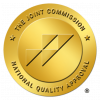
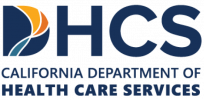


In Clinical Partnership With
PRI Treatment Center is proud to clinically partner with Children’s Primary Care Medical Group San Diego to expand access to high-quality mental health services. Together, we’re bridging the gap between primary care and mental health to better support the well-being of children and families in our shared community.
How PRI Treatment Center Helps Teens Stay on Track
At Protected Roots Integrative Treatment Center (PRI), we understand the delicate balance between academics and mental health. Our adolescent PHP is designed to support both, offering:
- Structured day treatment that fits within school schedules.
- Collaboration with schools to ensure assignments and credits stay on track.
- Family involvement to equip parents with tools for home and school support.
- Evidence-based therapies (CBT, DBT, trauma-informed care) to address core issues.
- In-person services in La Jolla and virtual options for accessibility.
Our mission is simple: help your child heal emotionally while protecting their path forward in education.
Call PRI Treatment Center today or verify your insurance benefits to see if a PHP program is the right next step for your family.
Frequently Asked Questions
Can my teen attend school while in a PHP?
Yes. PHP programs are designed with flexible schedules, allowing teens to continue schoolwork while receiving treatment. Many PHPs coordinate with schools to keep students on track academically.
Will my child fall behind academically in a PHP?
Not necessarily. PHPs often work with schools to provide accommodations, tutoring, and credit support. Once mental health stabilizes, academic performance usually improves.
How do PHPs help with balancing school and treatment?
PHPs provide structured treatment schedules that leave time for schoolwork, collaborate with teachers, and teach coping and time-management skills that benefit academics.
Key Takeaways for Parents
- Recognize when school alone isn’t enough — if your teen’s mental health is interfering with academics, PHP can provide critical support.
- Mental health comes first — stability now prevents bigger setbacks later.
- Schools and PHP programs can work together — accommodations, coordination, and flexibility help teens balance both.
- You’re not alone — PRI partners with families and schools to support adolescents in both recovery and learning.

Dr. Warter received his doctorate in Clinical Psychology from The Wright Institute in Berkely, California, completed his Predoctoral Internship at USC’s Children’s Hospital Los Angeles, and was a Postdoctoral Researcher at USC’s Institute for Integrative Health and Wellness. Dr. Warter has also been trained at UCSF School of Medicine, Kaiser Permanente, and in community clinics in rural, underserved communities in Argentina and Paraguay. Dr. Warter has received training in providing parents with guidelines to help prevent behavior problems and enhance communication skills and strategies to promote children’s social, emotional, and academic competence. Dr. Warter has also published and presented at the University of Naples and the University of Buenos Aires on subjects related to Third Culture Kids and the impacts of Social Media on Personality and Self Esteem.

